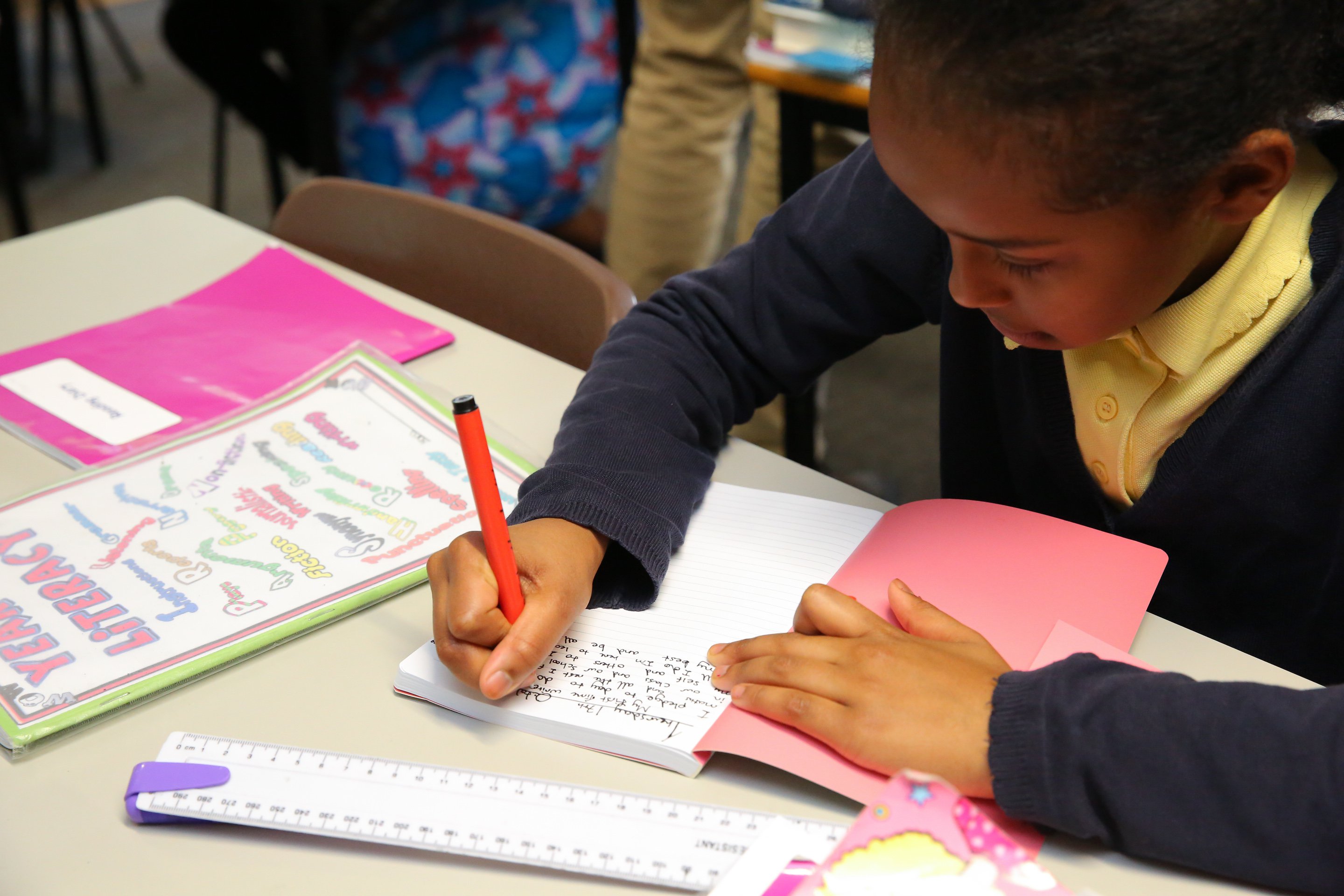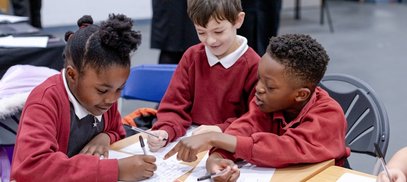Writing for enjoyment has almost halved over the past 15 years. In our recent research, only 1 in 4 (26.6%) of young people aged 8 to 18 said that they enjoy writing in their free time.
This has concerning long-term implications for learning and literacy outcomes. Writing now ranks as the lowest-performing area in national assessments, falling even below mathematics.
We also know that when children enjoy writing and write daily in their free time, this has great benefits for their writing skills, critical thinking skills, confidence, creativity, and wellbeing.
At the National Literacy Trust, our definition of literacy is deliberately broad because we know that a narrow focus will not raise literacy levels for our target communities. Through our CPD and resources offer, we are committed to ensuring that teachers and education practitioners are equipped to support the broad needs of their pupils (and ignite the abilities that the SPAG tests can't reach!).
In this article, you'll find resources to help you develop engaging and creative strategies for improving writing in your school.
To kick off, here are our top tips for getting started:
Five ways to encourage writing in your classroom
- Celebrate National Writing Day in your school and start, or reinvigorate, the conversation about supporting children to write in their own time.
- Create opportunities for free writing - provide pupils with a free writing notebook that is just for them and will not be marked – you could introduce Free Writing Friday in your school. Even better if teachers take part too!
- Join our primary Writers for Life project. Based on the IPEELL approach, this intervention and CPD supports teachers to build KS2 pupils' engagement with writing and accelerating their skills.
- Sign up for the free Young Poet Laureate programme and access online workshops and an inspirational toolkit of classroom materials designed to empower young people to express themselves creatively.
- Check out our free ideas, activities and prompts to encourage writing for enjoyment in the classroom.
- In our recent research, we found that children who don’t enjoy writing would be motivated to write if they were able to choose their own topics, select their writing style, respond to inspiring prompts and draw inspiration from memorable experiences they wanted to share. Are you providing writing opportunities for every type of writer? We'll take a look at what this means below, and resources to support this.

Flipping the script: What type of writer are you?
It's important that we provide enough writing opportunities for pupils. To help identify these opportunities, it can be useful to reflect on what kind of writing engages you.
Perhaps you're a list maker and enjoy getting things out of your head and down on paper?
Or maybe you prefer a gratitude journal, or love writing notes to friends and family, preferably in handmade cards with mini doodles?
Maybe you think there might be a novel in you so you carry around your writer’s notebook in case inspiration strikes?
Or you might be campaigning to save your local library using social media, letters to your local council and articles in your local newspaper.
You might even have been all of these types of writer at different points in your life.
How we can help you to facilitate writing opportunities
The good news is that the children who do write in their free time have told us clearly what motivates them to write. This is a fantastic starting point. Reflect on the opportunities for writing in your school – are your pupils getting the chance to explore creative writing, writing for wellbeing, writing for social connection, and writing for social change? Here are some of the ways we can help:
Create sparks of inspiration
Primary schools across the country signed up for our Comics Rule! Summer Writing packs which include lesson plans and materials that pupils can take home over the holidays.
Secondary schools: take a virtual tour of the National Justice Museum in Nottingham and let poet Panya Banjoko lead your students in writing inspired by the venue. This is a taster of our brilliant Young Nottingham Poets programme!
Writing for wellbeing
What says wellbeing more than nature and poetry?! We bring the two together in our brilliant resources produced in partnership with the RSPB.
Writing for social connection
We've also produced Premier League Magazine Team which is aimed at bringing together your reluctant writers around a shared interest. We’re confident they will forget they’re even writing.
Writing for social change
If your pupils are angry about parking outside the school or concerned about their local playground, harness their conversations and set up a training school for journalists in your classroom, using our brilliant NewsWise unit of work produced in partnership with The Guardian Foundation and the PSHE Association.
Older students might be starting to think about how to express their feelings of injustice through lyrics or performance and our Monologue Jam lessons are perfectly placed to support them with this.
And finally...
Remember that ‘good’ writing is about so much more than spelling, punctuation and grammar. Celebrate creative, compelling or original writing in assemblies, displays, and through your school’s reward systems.
